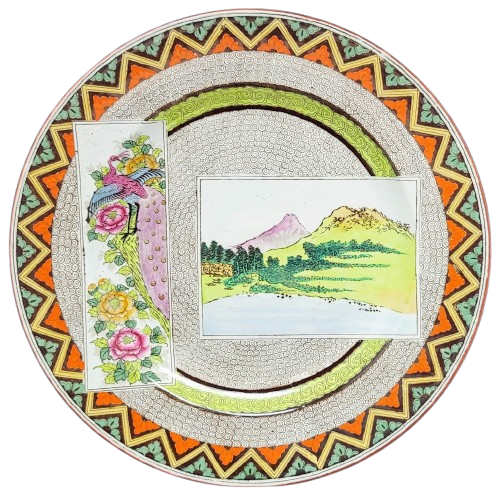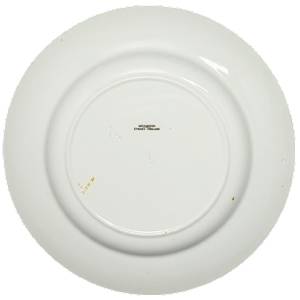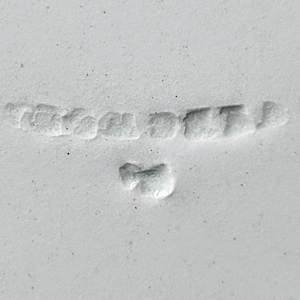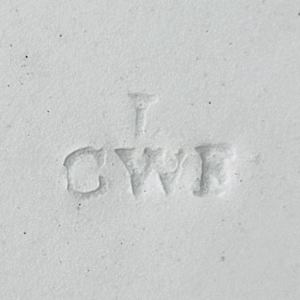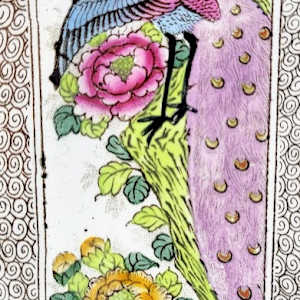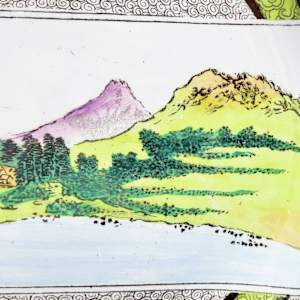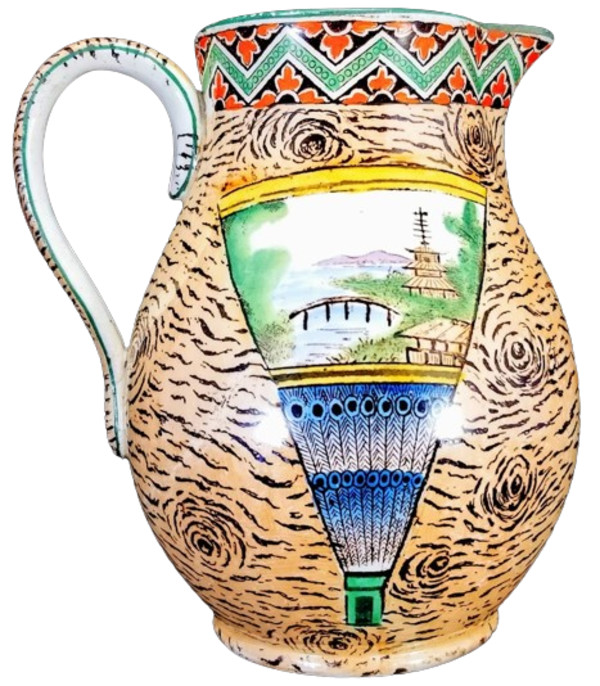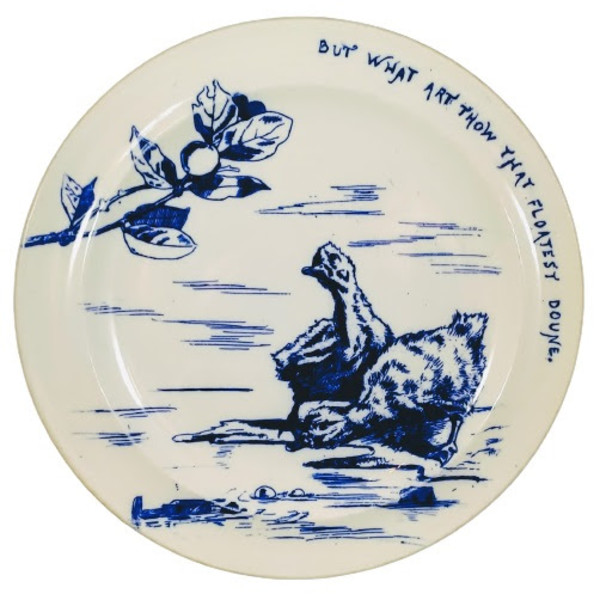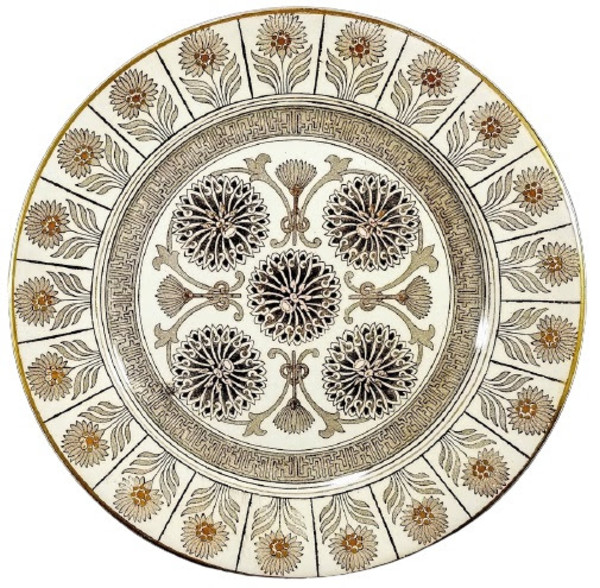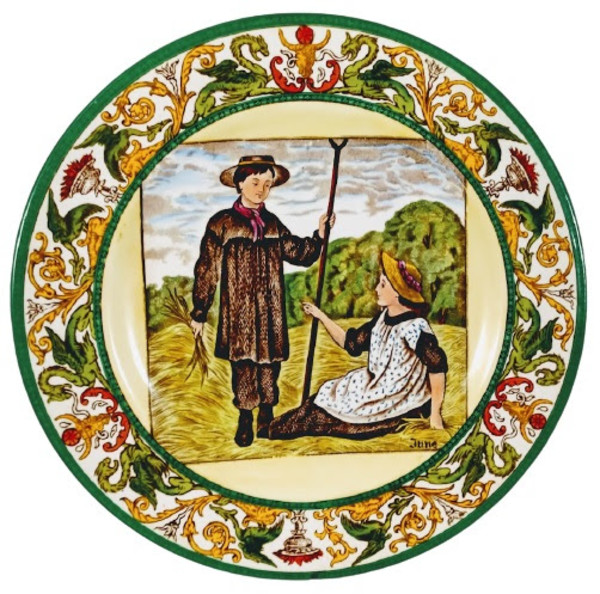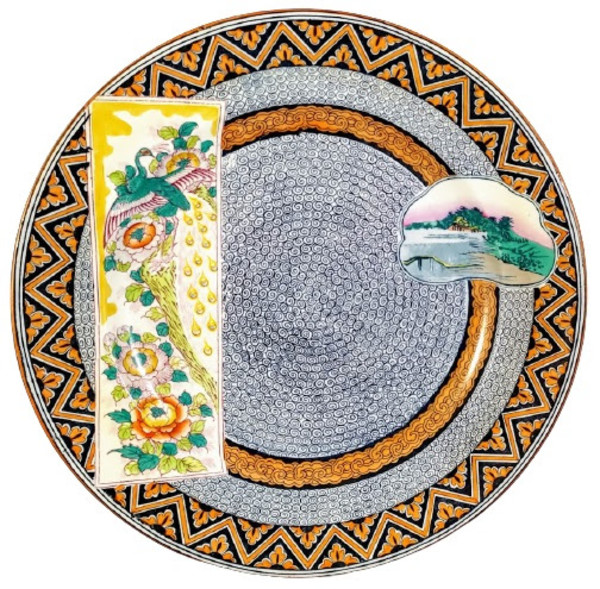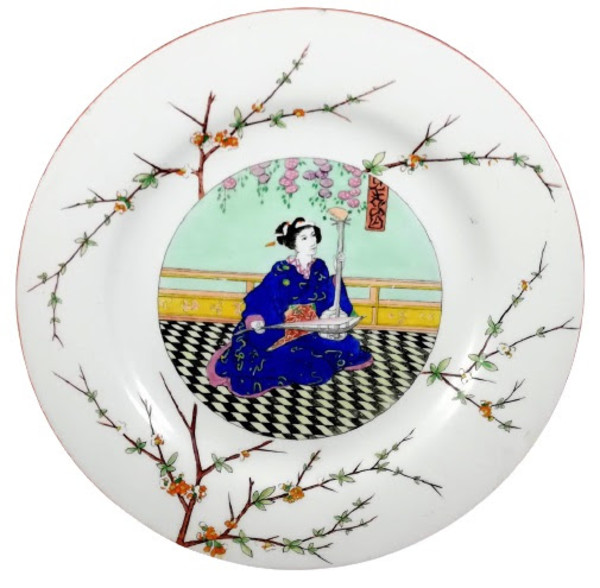- Josiah Wedgwood
- Mekado, 1876
- Earthenware
- 10.25 x 10.25 in (26.04 x 26.04 cm)
-
Not For Sale
Plate, 10.25 inches diameter. Black transfer with polychrome clobbering. Impressed and printed maker's marks for Wedgwood. Red painted A4212, which is the pattern number. Part of the "Mekado" series, this pattern features Wedgwood's Mikado diaper pattern on the border and Japonesque panels laid over an all-over spiral pattern. The vertical rectangular panel features a peacock with tail feathers trailing over peonies taken straight from Japanese art. The horizontal rectangular panel features a Japanese village nestled in the trees on the shores of a lake with a craggy hill and mountain in the distance.
Josiah Wedgwood was born in Burslem, Staffordshire, on July 12, 1730, into a family with a long tradition as potters. At the age of nine, after the death of his father, he worked in his family's pottery. In 1759 he set up his own pottery works in Burslem. There he produced a highly durable cream-colored earthenware that so pleased Queen Charlotte that in 1762 she appointed him royal supplier of dinnerware. From the public sale of Queen's Ware, as it came to be known, Wedgwood was able, in 1768, to build near Stoke-on-Trent a village, which he named Etruria, and a second factory equipped with tools and ovens of his own design. At first only ornamental pottery was made in Etruria, but by 1773 Wedgwood had concentrated all his production facilities there. During his long career Wedgwood developed revolutionary ceramic materials, notably basalt and jasperware. After Wedgwood's death in Etruria on January 3, 1795, his descendants carried on the business, which still produces many of his designs.
- Subject Matter: Aesthetic (Japonesque)
- Collections: Aesthetic Transferware, Josiah Wedgwood
